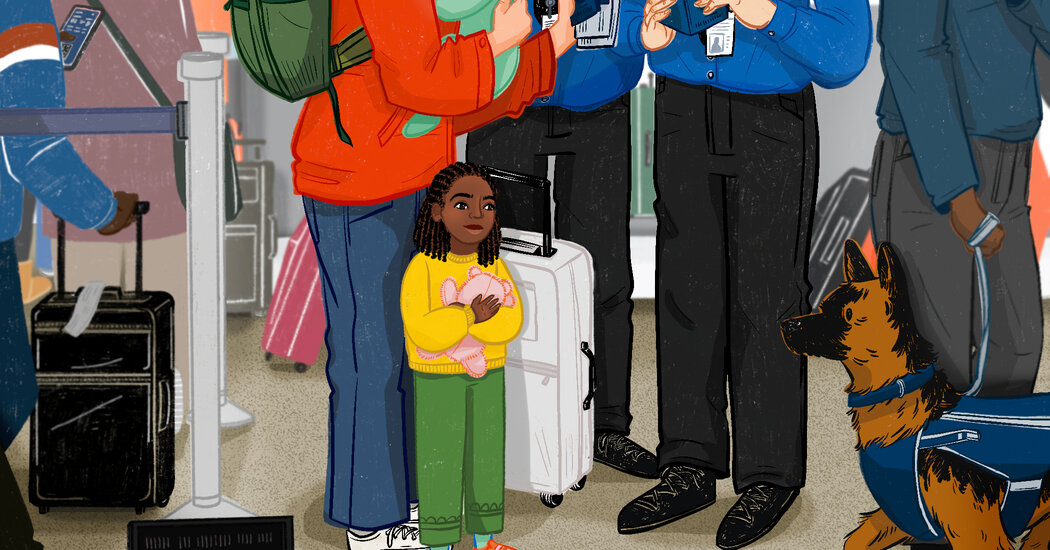These days, whenever Ms. Hooks or Ms. Lewis flies with Caleb, who is now 3, they each carry a packet filled with paperwork, including his adoption forms, his birth certificate and many family photos.
Most T.S.A. agents are not law enforcement officials, and they do not have the power to arrest people. But they do have the power to detain travelers and call in the airport police, who are on site and can make arrests.
T.S.A. workers, agents with the Department of Homeland Security and the Federal Aviation Administration, and employees of every major airline all receive mandatory training on kidnapping and child trafficking — and for good reason: The U.S. State Department estimates that 24.9 million people are being trafficked worldwide, and children are believed to comprise nearly one-third of the victims, according to the U.N. Children’s Fund, or UNICEF.
Thousands of T.S.A. officers also undergo behavior detection training so they learn how to identify signs of stress or fear among passengers and then flag them for further screening.
At security checkpoints, the T.S.A. has modified screening procedures designed for children who appear to be 12 or younger. These include allowing younger children to leave their shoes and light jackets on during screening, and being careful not to separate them from their parents or guardians. But some parents say that their children are also being directly questioned.
“It’s not easy for a 5-year-old to answer a stranger’s question, so I was a little nervous,” said Catherine Collins, 35, a personal finance author and single mother who was stopped by the T.S.A. last year while flying out of Detroit with her twins, a boy and a girl. Ms. Collins’s last name is different from her children’s.
“He asked the twins, ‘Who is this?’ And he pointed to me,” she said of the agent. “And when my son said, ‘That’s Mommy,’ the agent asked him, ‘What’s your mommy’s first name?’”
Sumber: www.nytimes.com












